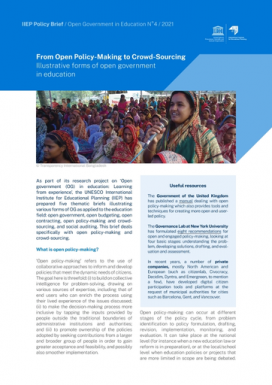Ben Brody at Protocol: “Congress has failed to regulate tech, so states and cities are stepping in with their own approaches to food delivery apps, AI regulation and, yes, privacy. Tech doesn’t like what it sees….
Andrew Rigie said it isn’t worth waiting around for tech regulation in Washington.
“New York City is a restaurant capital of the world,” Rigie told Protocol. “We need to lead on these issues.”
Rigie, executive director of the New York City Hospitality Alliance, has pushed for New York City’s new laws on food delivery apps such as Uber Eats. His group supported measures to make permanent a cap on the service fees the apps charge to restaurants, ban the apps from listing eateries without permission and share customer information with restaurants that ask for it.
While Rigie’s official purview is dining in the Big Apple, his belief that the local government should lead on regulating tech companies in a way Washington hasn’t has become increasingly common.
“It wouldn’t be a surprise if lawmakers elsewhere seek to implement similar policies,” Rigie said. “Some of it could potentially come from the federal government, but New York City can’t wait for the federal government to maybe act.”
New York is not the only city to take action. While the Federal Trade Commission has faced calls to regulate third-party food delivery apps at a national level, San Francisco was first to pass a permanent fee cap for them in June.
Food apps are just a microcosm highlighting the patchworks of local-level regulation that are developing, or are already a fact of life, for tech. These regulatory patchworks occur when state and local governments move ahead of Congress to pass their own, often divergent, laws and rules. So far, states and municipalities are racing ahead of the feds on issues such as cybersecurity, municipal broadband, content moderation, gig work, the use of facial recognition, digital taxes, mobile app store fees and consumer rights to repair their own devices, among others.
Many in tech became familiar with the idea when the California Consumer Privacy Act passed in 2018, making it clear more states would follow suit, although the possibility has popped up throughout modern tech policy history on issues such as privacy requirements on ISPs, net neutrality and even cybersecurity breach notification.
Many patchworks reflect the stance of advocates, consumers and legislators that Washington has simply failed to do its job on tech. The resulting uncompromising or inconsistent approaches by local governments also has tech companies worried enough to push Congress to overrule states and establish one uniform U.S. standard.
“With a bit of a vacuum at the federal level, states are looking to step in, whether that’s on content moderation, whether that’s on speech on platforms, antitrust and anticompetitive conduct regulation, data privacy,” said April Doss, executive director of Georgetown University’s Institute for Technology Law and Policy. “It is the whole bundle of issues.”…(More)“


